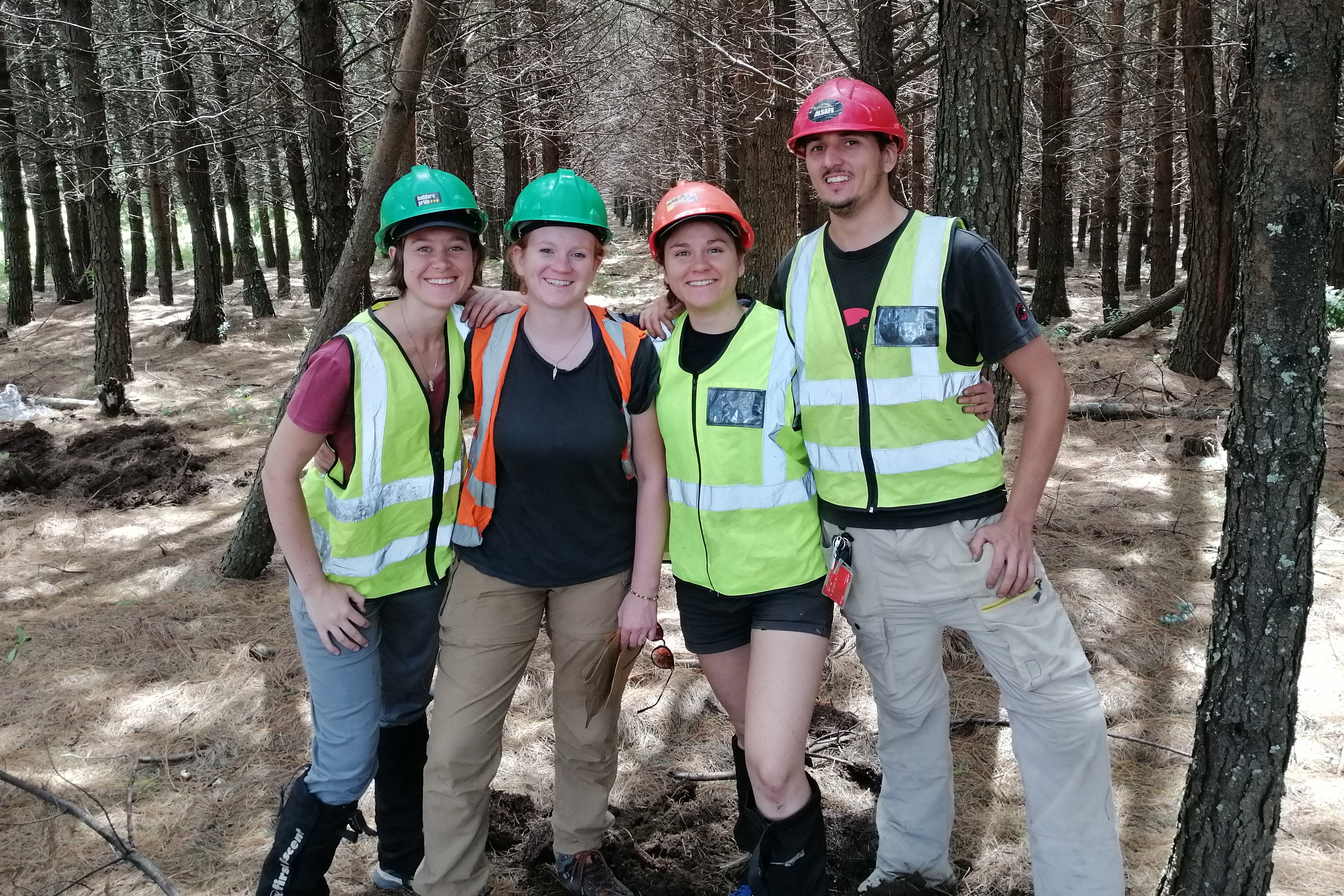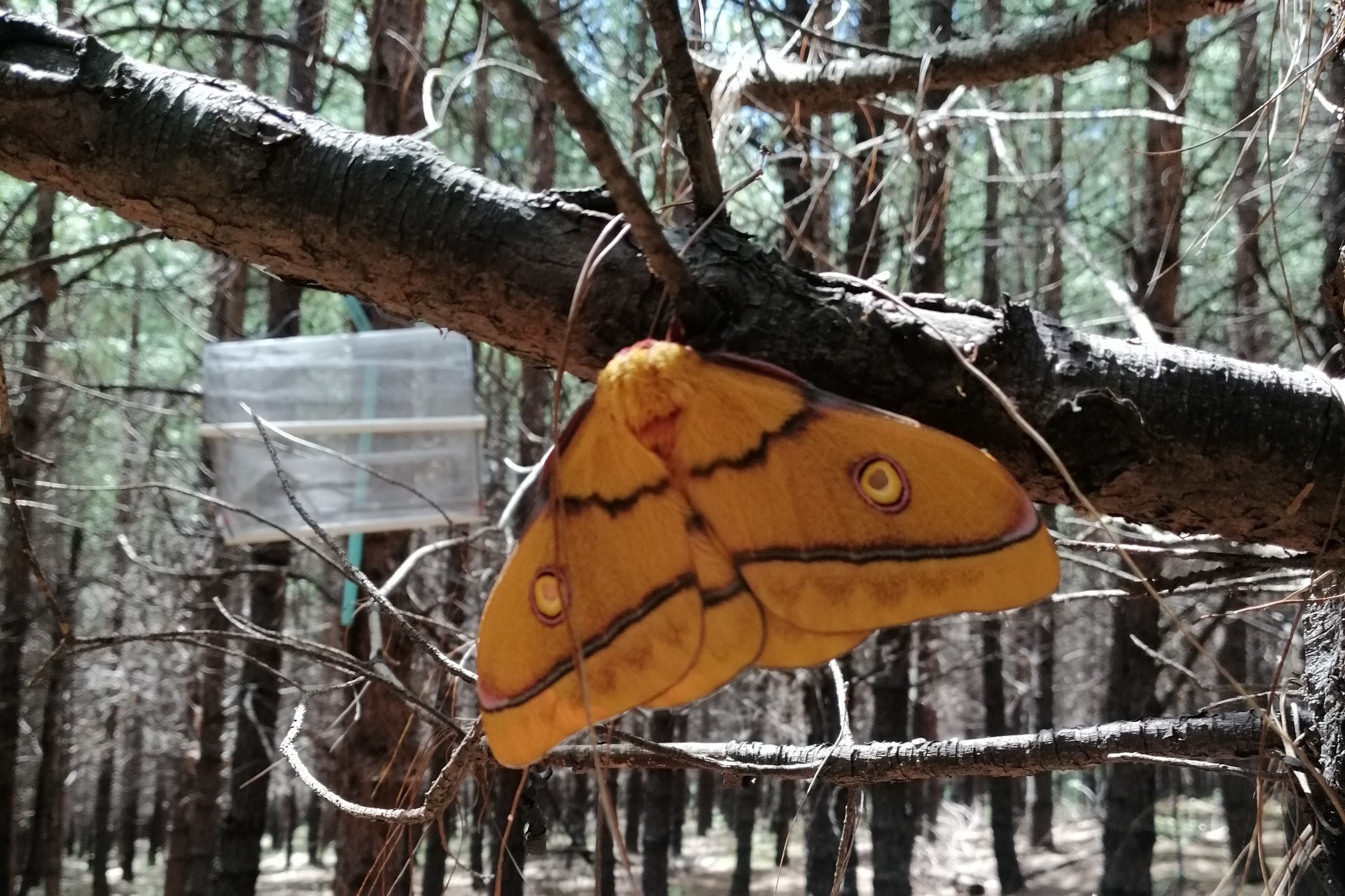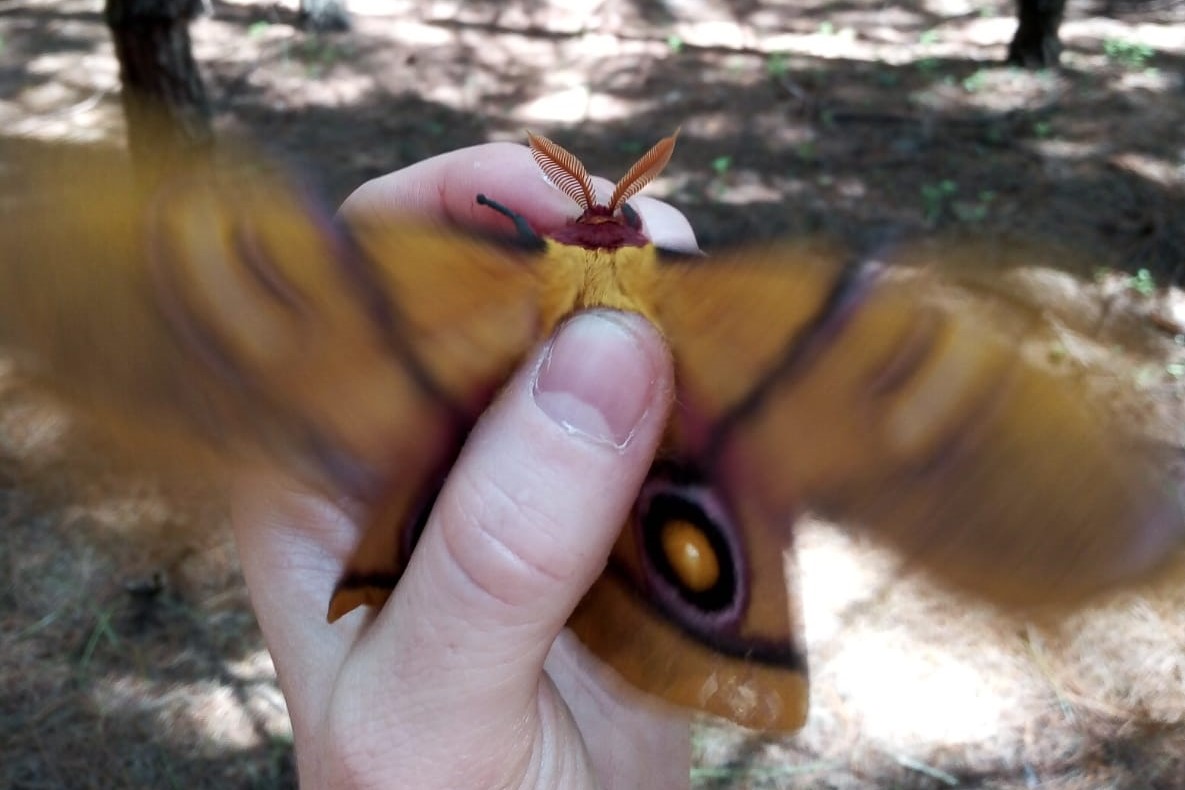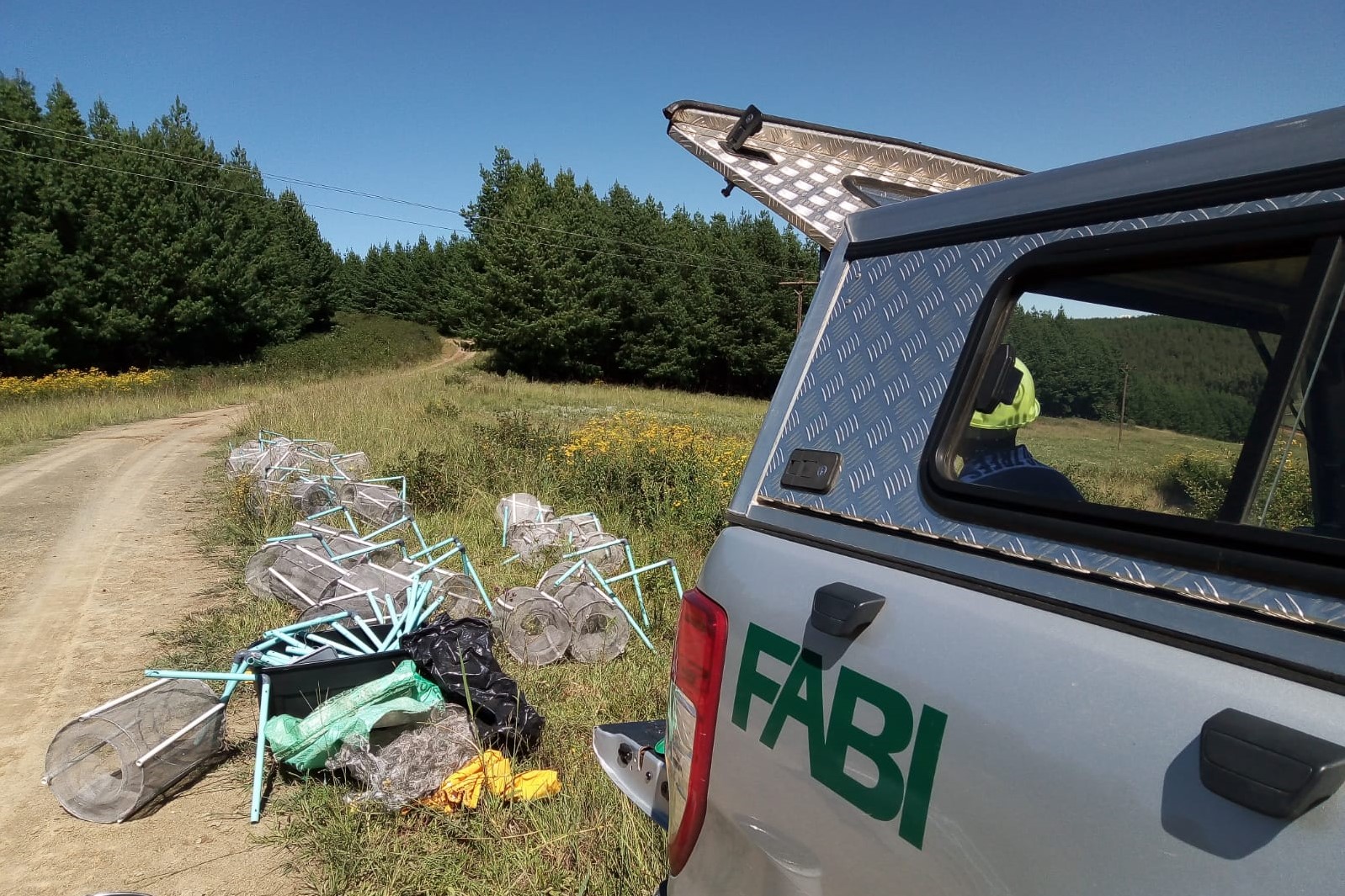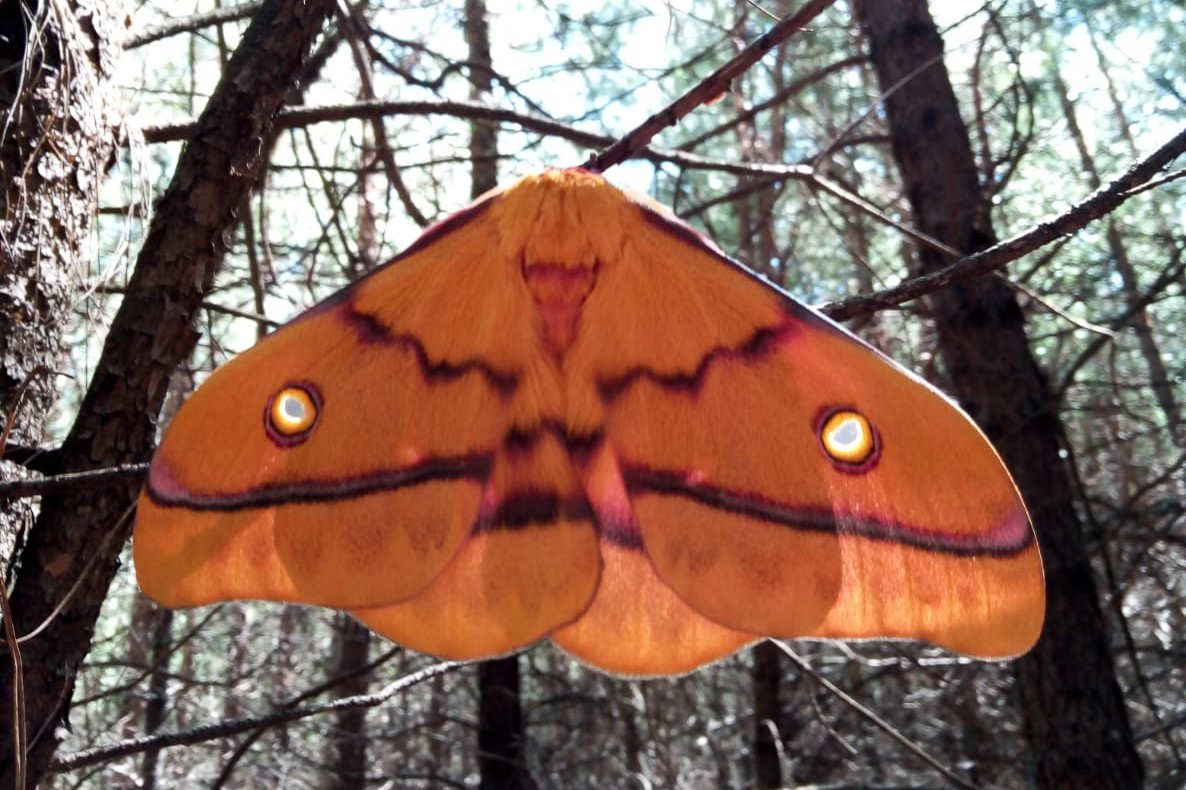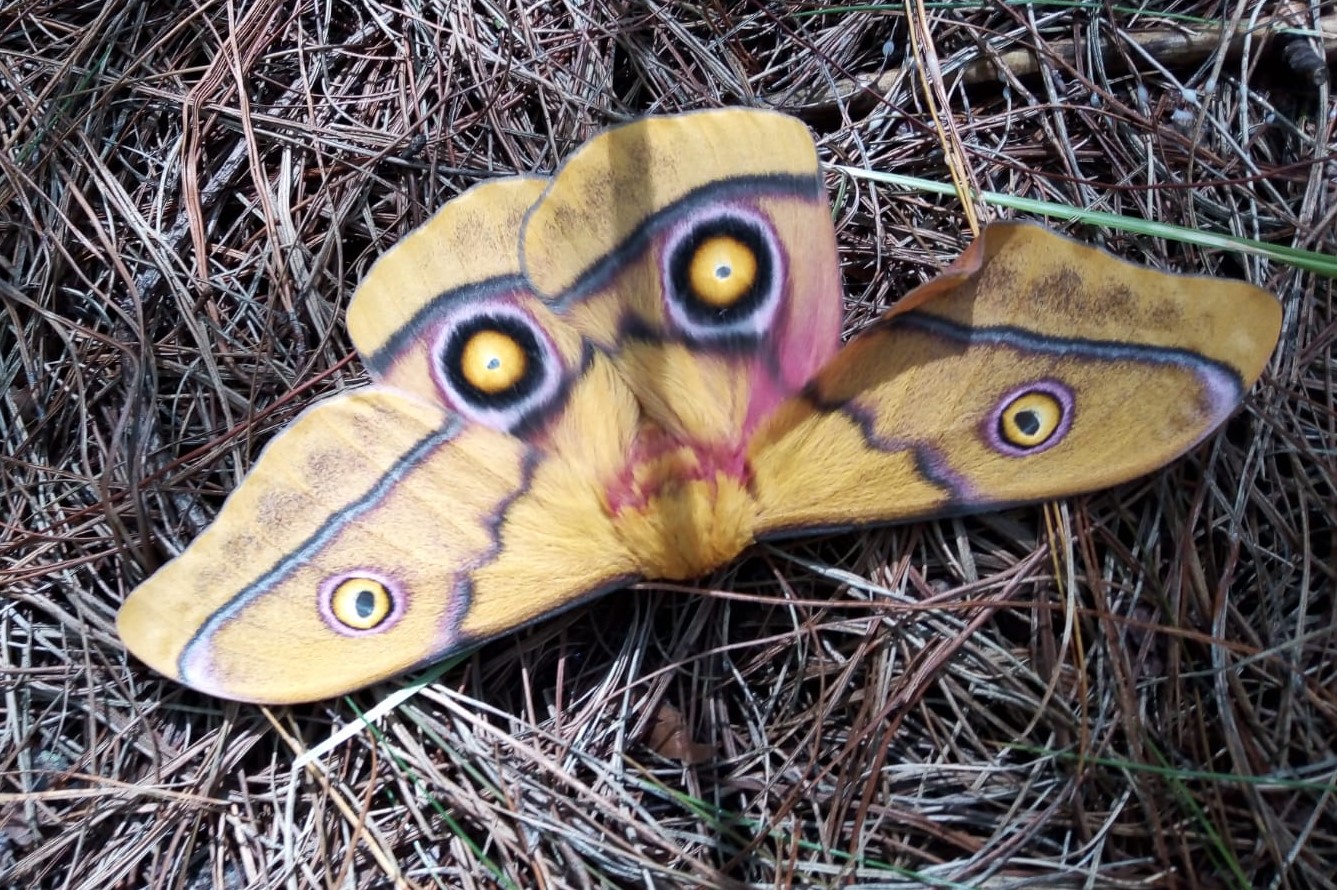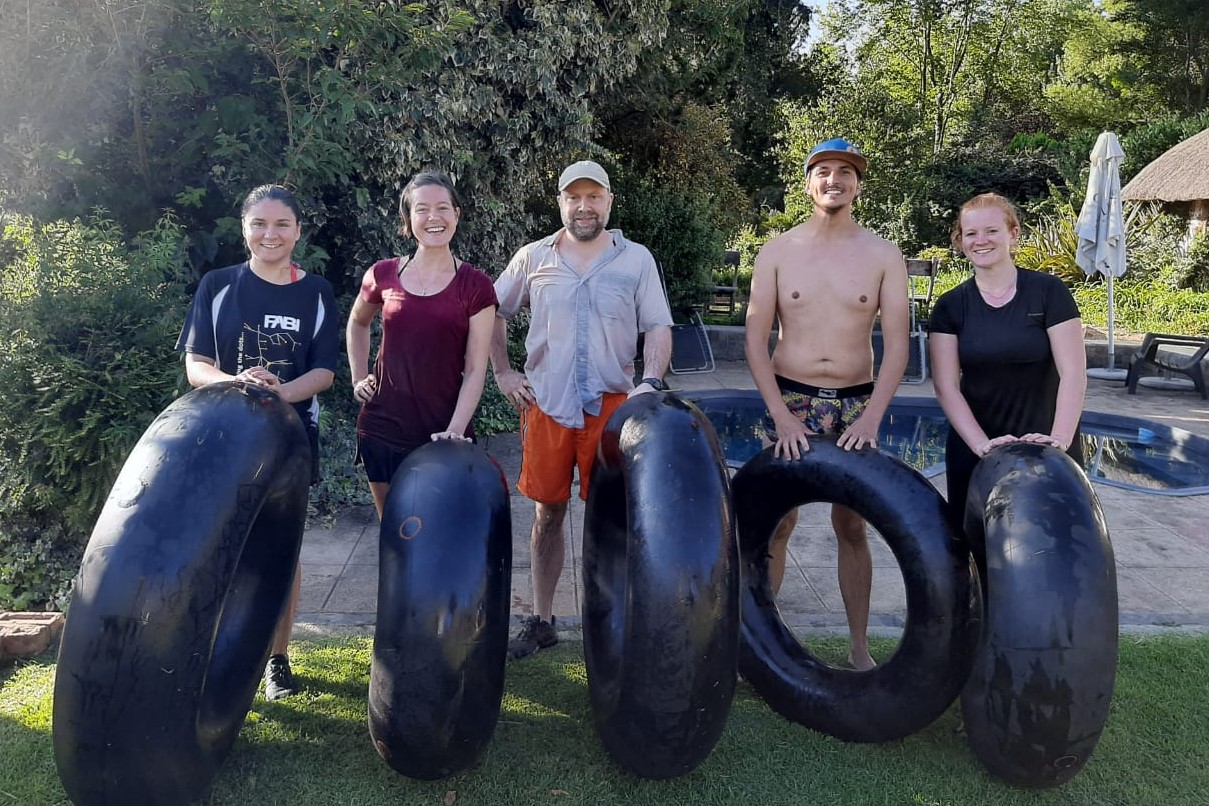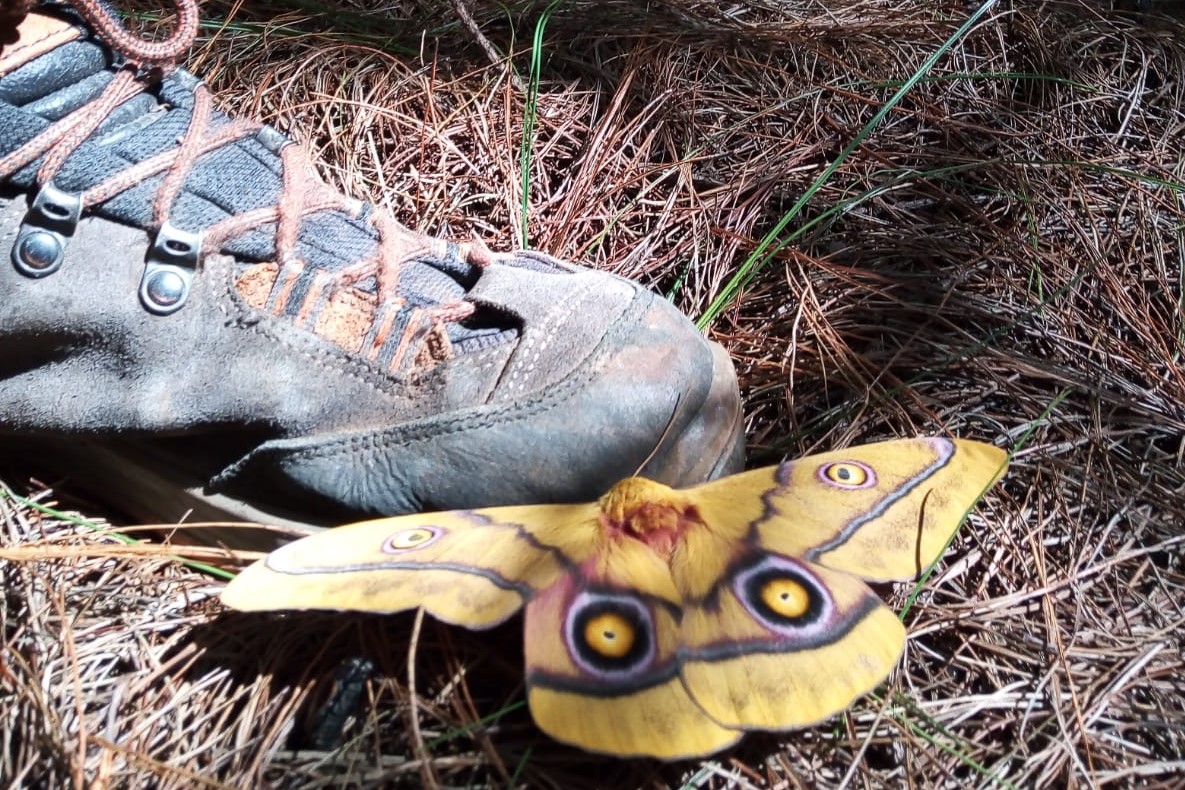Moth pheromone trial in Underberg, KZN 2020-03-25
Professor Jeremy Allison (Extraordinary Professor in FABI at UP) joined Luki-Marie Scheepers, Josephine Queffelec, Elisa Pal and Quentin Guignard on a field trip to Underberg, near the Drakensberg from 2-4 March. The aim of this trip was to set up custom-built pheromone-baited traps, in collaboration with Sappi, to capture Nudaurelia clarki (pine emperor moths) in pine plantations. N. clarki is indigenous to southern Africa and it has become a sporadic pest in Pinus patula plantations. Its larvae feed on pine needles, which leads to stunting.
The aim of this trial is to evaluate the responses of the male emperor moths to different doses of a synthesized pheromone used in the traps. The synthesized pheromone mimics the pheromone produced by the females to attract male moths. These pheromone-baited traps were used in a field trial in 2019, capturing 881 males. This study will further our understanding of how the pheromone works in field conditions. Sex pheromones like these are valuable tools in managing these pests. They can be used to monitor the presence of adult moths and to lure males away from females, minimizing mating events.
Professor Allison leads the newly launched satellite lab in Applied Chemical Ecology at FABI. He is based at the Great Lakes Forestry Centre of the Canadian Forest Service and is affiliated with the University of Toronto. The team is grateful to him, as well as to Prof. Jolanda Roux, Ms Kayla Noeth and Mr Siyabonga Dube (SAPPI) for their assistance with this exciting field experiment.


